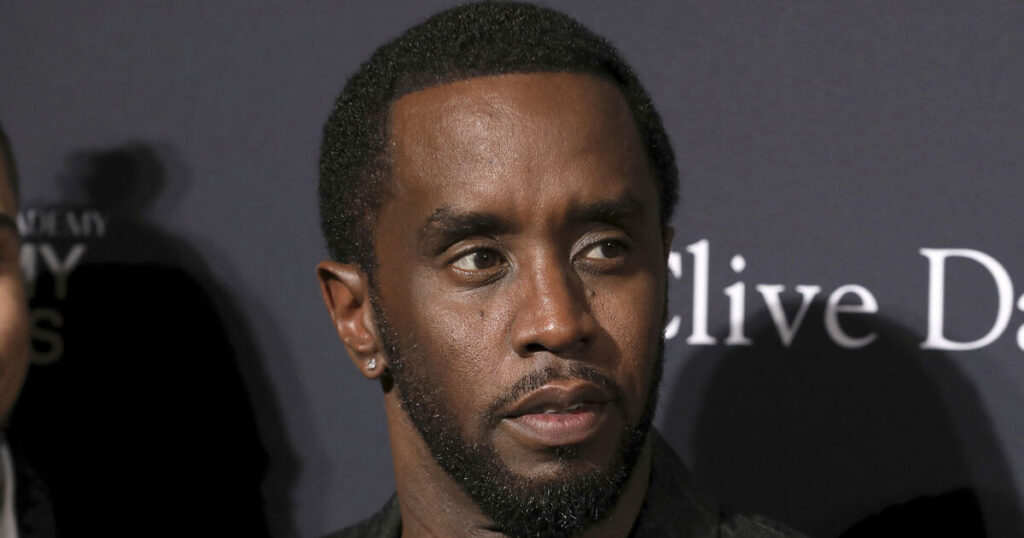A lawyer for Sean “Diddy” Combs protested at the rising tide of secrecy at the hip-hop star’s federal sex trafficking and racketeering trial on Thursday, after Combs and the public were excluded from lengthy arguments over whether another famous rapper’s name could be disclosed.
Defence lawyer Marc Agnifilo complained to Judge Arun Subramanian after Combs was left out of an hour-long meeting in a private room outside the New York court, where lawyers and the judge discussed a hotel room “event” in January 2024.
That meeting added a two-hour delay to the start of the sixth and final day of evidence from a woman identified in court only by the pseudonym “Jane”, who dated Combs from 2001 until his arrest last September.
Combs, 55, has pleaded not guilty to charges that carry a potential prison sentence of 15 years to life in prison if he is convicted.
Prosecutors say he used his fame, fortune, violence and threats to manipulate girlfriends into sex with paid sex workers in multi-day events that they later said they regretted.
Defence lawyers say the government is trying to prosecute consensual sex between adults.
Under cross-examination, Jane said on Thursday that she flew to Las Vegas in January 2023 with a famous rapper and his girlfriend.
Defence lawyer Teny Geragos did not identify the rapper, but asked Jane if he was “an individual at the top of the music industry as well, an icon in the music industry?”
“Yes,” Jane replied.
Once in Las Vegas, Jane said, she went with a group including the rapper to dinner, a strip club and then a hotel room party, where a sex worker had sex with a woman while half a dozen others in the room watched.
She said there was dancing in the room and the rapper said, “hey beautiful”, and told her that he had always wanted to have sex with her.
Jane said she did not recall exactly when she did it, but said she flashed her breasts in the room as she danced.
The evidence came soon after the closed-door session on Thursday, when lawyers discussed what facts could be disclosed about the hotel room encounter.
Mr Agnifilo said the need for a public trial was “an important issue, a constitutional issue” and objected to so much happening out of the earshot of his client.
In response, the judge offered more secrecy, saying: “If your client wishes to be heard, we can clear this courtroom if need be to address it.”
Mr Agnifilo turned down the offer.
“Part of the reason trials are fully public is so if other people realise they know something about an event discussed in a public courtroom, they can come forward and share their recollection of it,” the lawyer said.
He added: “That is kind of the practical side of the constitutional right to a public trial.”
A monitor that is used to show exhibits to spectators has been shut off throughout Jane’s evidence, although lawyers, the judge, Combs and jurors can view them.
Some sidebar conversations between lawyers and the judge during the evidence have been sealed.
The judge also has banned the public from viewing any exhibits containing sexual content, even though the defence has said images from the group sex episodes proves they were consensual acts between adults, and not proof of crimes.
And many of the letters to the judge from lawyers each day are filed under seal, preventing the public from quickly knowing, for instance, the grounds under which prosecutors are trying to get a black juror ejected from the jury in mid-trial.
The judge has said he will rule on the request on Friday.
Defence lawyer Alexandra Shapiro has called the prosecution’s effort a “thinly veiled effort to dismiss a black juror”.
Jane and Casandra “Cassie” Ventura, who gave evidence for four days in the trial’s first week about her relationship with Combs from 2007 to 2018, both said they took part in the sex marathons for years, with Cassie calling them “freak-off” nights and Jane referring to them as “hotel nights”.
Mr Agnifilo said the defence consented to Jane giving evidence with a pseudonym but did not consent to other events related to her evidence and the evidence of other witnesses not being public.
Assistant US attorney Maureen Comey attacked Mr Agnifilo’s rationale for disclosing more information publicly with the risk that it would be easier for someone to guess Jane’s identity, saying it was an “attempt to harass and intimidate this witness”.


